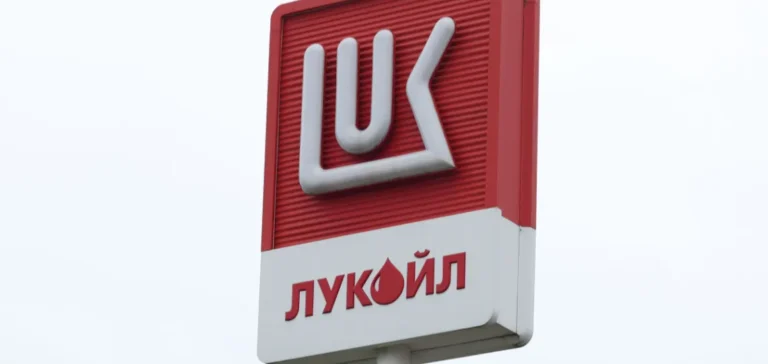Russian oil group Lukoil has announced its intention to divest its non-Russian assets in direct response to recent US sanctions targeting the country’s oil industry. The company, Russia’s second-largest oil producer after state-owned Rosneft, stated that discussions had begun with potential buyers under a wind-down licence issued by the US Office of Foreign Assets Control (OFAC).
Immediate impact on assets in Europe and the Middle East
Among the assets concerned are several strategic infrastructures, including the West Qurna 2 oil field in Iraq, where Lukoil holds a 75% stake and production was estimated at 480,000 barrels per day in April. In Europe, the company controls the Lukoil Neftohim Burgas refinery in Bulgaria, the largest in the Balkans with a capacity of 190,000 barrels per day, as well as the Petrotel refinery in Romania.
Lukoil also operates a network of fuel stations in Romania and several neighbouring countries, historically supplied by output from the Burgas facility. Since 2024, Sofia has faced increasing pressure to push for the sale of the refinery after the expiration of a temporary European Union exemption allowing continued imports of Russian oil.
An adaptation strategy amid mounting sanctions
Lukoil had already been forced to sell the ISAB refinery in Sicily in 2023 to GOI Energy, after European sanctions made operations difficult. In Western Europe, several Lukoil-branded fuel stations have been sold or rebranded, particularly in Germany, the Netherlands, and the Baltic States.
The company remains exposed in other markets. In Turkey, it supplies crude oil to the STAR refinery owned by Azerbaijani company SOCAR, which is heavily dependent on Russian oil. Lukoil also holds stakes in oil terminals, fuel distribution networks, and upstream and downstream projects across Central Asia, Africa, and Latin America.
Repercussions on oil flows to Central Europe
Deliveries to Hungary and Slovakia, two of Lukoil’s key European clients, could face disruption. Both countries currently benefit from exemptions within the European Union embargo, but these derogations may be reconsidered under the nineteenth sanctions package recently adopted.
In August last year, exports to Hungary were already temporarily suspended following Ukraine’s decision to block the transit of Russian oil through its territory. Continuity of supply was maintained by Rosneft, which uses the same pipeline infrastructure.






















